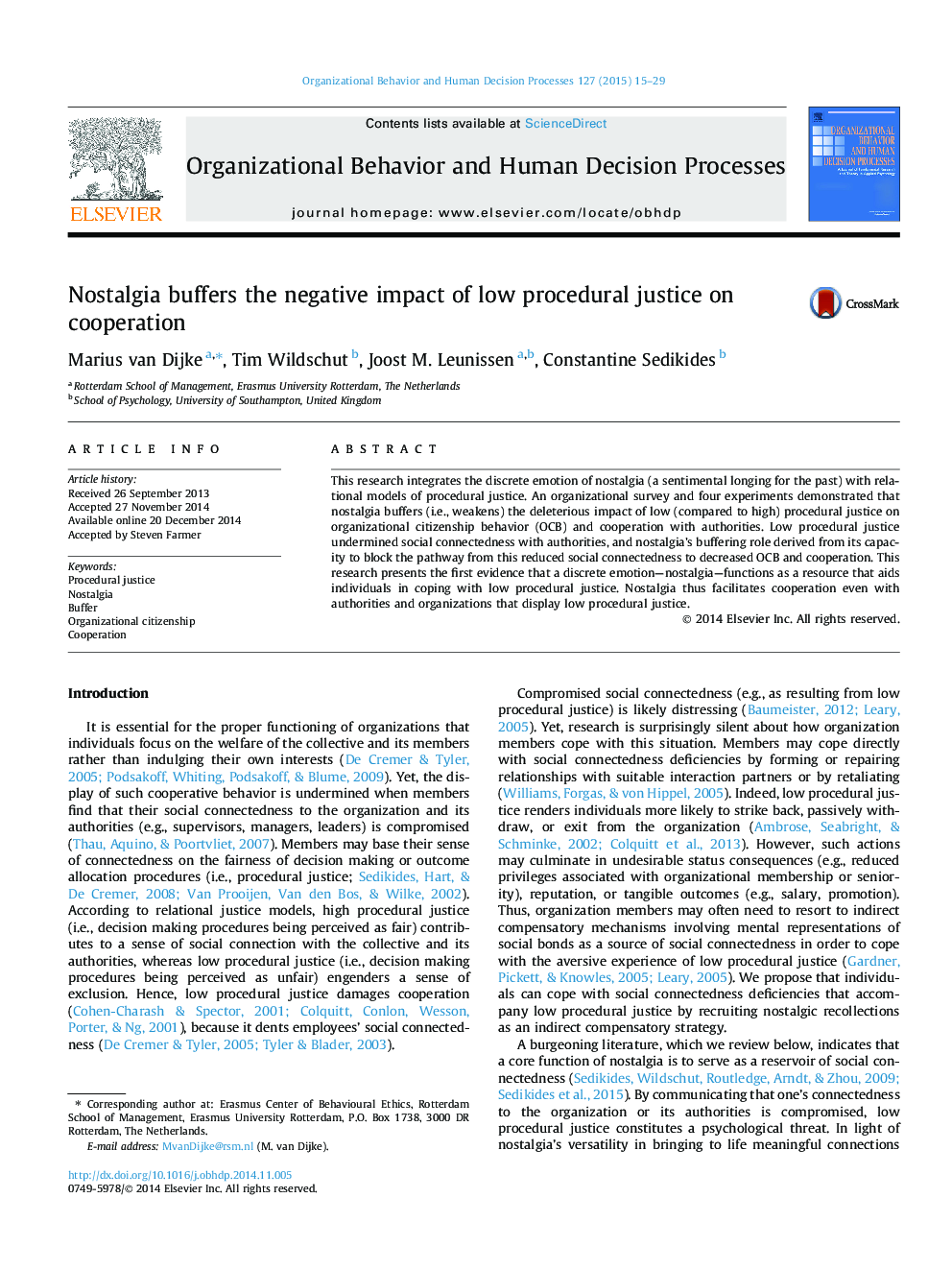| Article ID | Journal | Published Year | Pages | File Type |
|---|---|---|---|---|
| 888513 | Organizational Behavior and Human Decision Processes | 2015 | 15 Pages |
•We integrate the discrete emotion of nostalgia with relational justice models.•We show that nostalgia buffers the harmful effect of low procedural justice on cooperation.•We show that nostalgia blocks the path between social connectedness (as reduced by low justice) and cooperation.•We report evidence from one organizational field study and four experiments.
This research integrates the discrete emotion of nostalgia (a sentimental longing for the past) with relational models of procedural justice. An organizational survey and four experiments demonstrated that nostalgia buffers (i.e., weakens) the deleterious impact of low (compared to high) procedural justice on organizational citizenship behavior (OCB) and cooperation with authorities. Low procedural justice undermined social connectedness with authorities, and nostalgia’s buffering role derived from its capacity to block the pathway from this reduced social connectedness to decreased OCB and cooperation. This research presents the first evidence that a discrete emotion—nostalgia—functions as a resource that aids individuals in coping with low procedural justice. Nostalgia thus facilitates cooperation even with authorities and organizations that display low procedural justice.
